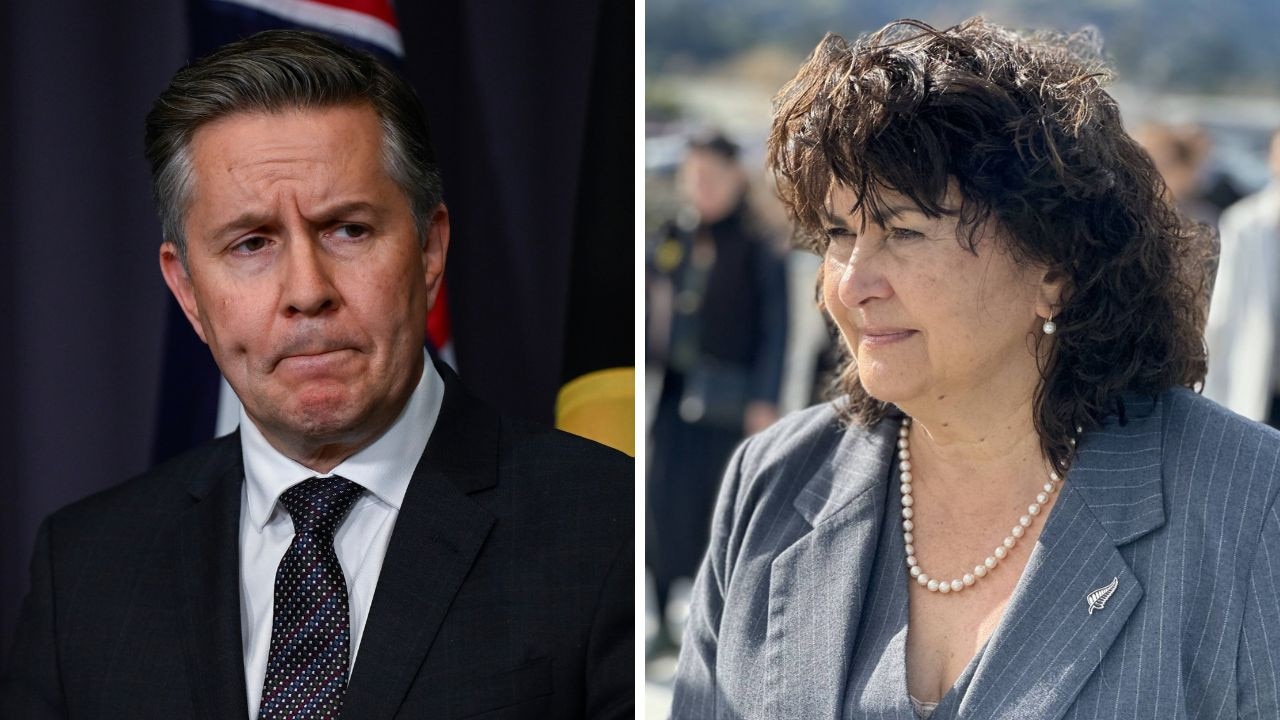Tributes flow for broadcaster Jill Singer who lost her battle with a rare blood disease
TV broadcaster and journalist Jill Singer’s battle with a rare blood disease touched many, as did her fearless reporting, Annette Sharp writes.
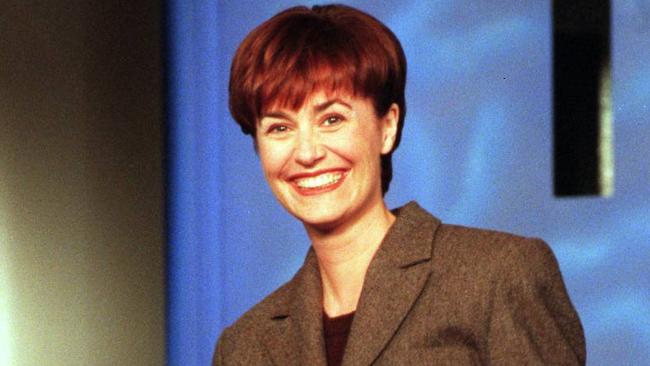
THE death of Victorian broadcaster and journalist Jill Singer last week, at age 60, brought many tributes from those who remembered her at the height of her media powers two decades earlier, as well as those touched by her battle with a terminal blood disease.
For some with longer memories, it also prompted the dusting off of stories concerning Singer’s legendary, albeit brief, romance with her former boss, Seven Network television proprietor Kerry Stokes — a relationship that ended in dramatic circumstance in 1996.
Singer began her journalism career at the ABC and made her mark working for programs including The 7.30 Report where she worked as reporter, executive producer and presenter — picking up a Walkley Award in 1992 for a story investigating the medical treatment of sick newborn babies, a report that led to a Victorian Law Reform Commission review of guidelines.
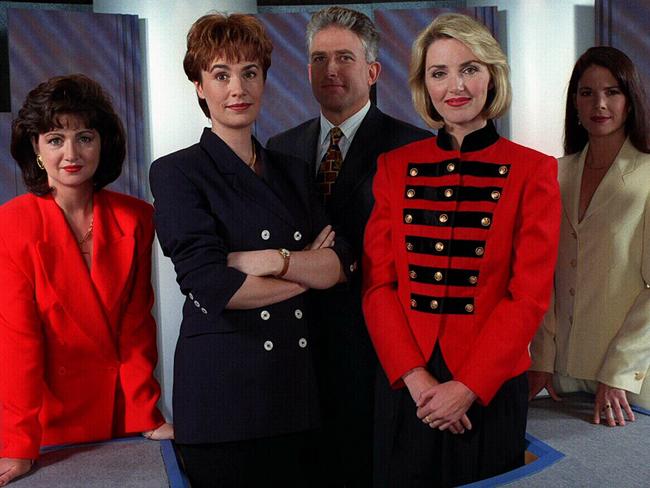
Not long after, she was enticed to Channel Seven, where she was appointed as founding anchor of the Victorian edition of Today Tonight in 1995, the appointment of Singer widely seen as a sign the TV network was getting serious about weeknight current affairs and not merely copying a popular tabloid format focusing on diets, scams and scandals.
But the program’s pursuit of a serious news agenda saw it fall foul of management in May 1996 with a story critical of then Victorian premier Jeff Kennett and his share dealings.
Following management intervention, the story was pulled just moments before being broadcast and Singer, then 39, collapsed on air after informing her television audience the story had been killed.
“Tonight we had planned to bring you a story about poker machine king Bruce Mathieson and a link with the Premier Jeffrey Kennett, however we can’t bring you that report because we have been instructed by senior management not to put the story to air,” Singer informed the Today Tonight audience.

Kate Durham.
She then threw to another story before falling, off camera, to the floor of the HSV-7 studio. An ambulance was called and Singer was taken to Melbourne’s Alfred Hospital where she was tested for “bloodflow abnormality” to the brain.
She would later tell Four Corners in 1997: “I felt the most enormous pressure building up in my head and pain, intense pain. In fact as I was sitting there trying to read it felt really like something had exploded in my head. I managed to get through to the end of the link and the pain was so intense, I hit the floor.”
The television company and its chairman Stokes soon had to defend claims the story had been pulled due to pressure from Kennett — something the network denied despite suggestions Stokes was investing in Victoria at Kennett’s behest.
Stokes said he’d known nothing about the story until it was pulled, later telling Four Corners it was pulled because: “Those journalists didn’t go through our corporate legal structure.”
Following public outcry the story went to air the next day, but seven journalists working on the story, including Singer, had their contracts cancelled by Seven.
Departed producers would later tell Four Corners the story was first vetted by Channel Seven’s in-house lawyer before being referred to an external legal company, two barristers and a defamation lawyer.
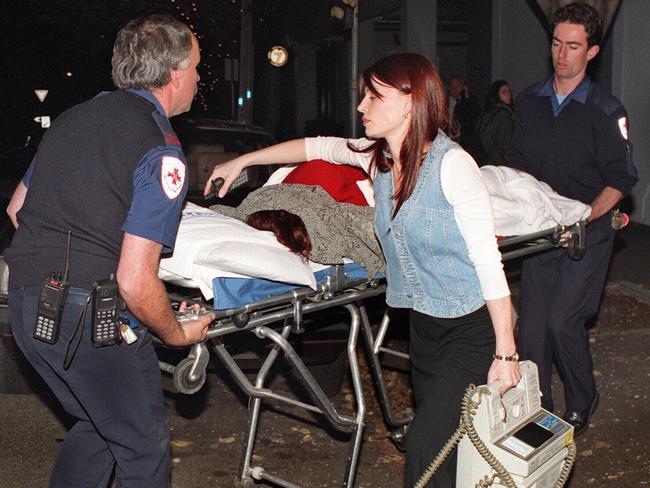
Meanwhile as Singer recovered in hospital from what was diagnosed as a stress-induced migraine, reports quickly emerged shedding light on her secret relationship with Stokes, whose marriage to actor Peta Toppano, his third, had collapsed a year earlier.
According to Margaret Simons’ biography Kerry Stokes: Self Made Man, the Seven proprietor had no more contact with Singer following the night of her collapse.
It signalled the end to a romance that Singer would later acknowledge but Stokes never would.
Stokes’s associates would tell biographer Andrew Rule Singer was no more than a fellow smoker who may have spoken to Stokes during smokos.
Many maintain Singer never fully recovered from the devastating and public split with Seven.
She did determine however to put it behind her and move on.
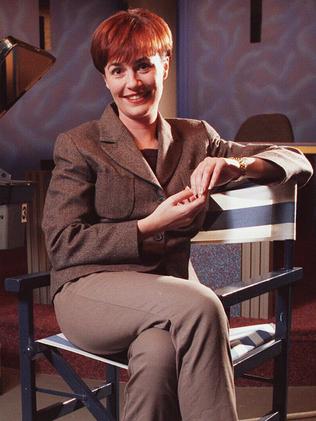
She began a relationship with esteemed Melbourne architect Peter Davidson who designed Federation Square.
While enjoying new challenges as a university lecturer with RMIT and as a newspaper columnist, Singer built a life with Davidson while raising her daughter Daine, born of a brief relationship when she was 23.
That relationship with Davidson would survive 15 years and his debilitating stroke in 2010, but it could not survive the deterioration of Singer’s own health.
Diagnosed by GPs as depression, Singer spent years battling with the mysterious condition.
She was recovering from her fourth round of electroconvulsive treatment after a recent stay at a psychiatric hospital earlier this year when this writer tried to contact her in the hope she might be ready to open up about her life.
Soon after, she was diagnosed with a rare and terminal blood disorder, AL amyloidosis. My hoped for interview would not happen.
On Wednesday she lost her battle with the disease. Her family posted to Facebook: “So missed, a bright light who made a difference. Always loved.”
In the months before her death Singer took a new husband, Melbourne criminal lawyer Anthony Brand — her “steadfast love” — whom she met through her best friend Kate Durham, partner of lawyer and human rights advocate Julian Burnside.
Perhaps it’s a coincidence but it’s worth noting that Burnside is the barrister who this year signed on to represent sacked former Seven executive assistant Amber Harrison in her battle against Seven CEO Tim Worner and Stokes — a battle most believe to be unwinnable, but one Singer would have understood better than most to be worth fighting — particularly with Jeff Kennett now a member of the Seven board.
Originally published as Tributes flow for broadcaster Jill Singer who lost her battle with a rare blood disease



